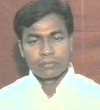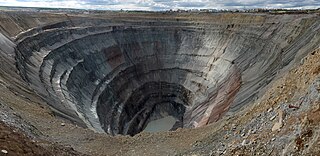Related Research Articles

The Adivasi refers to heterogeneous tribal groups across the Indian subcontinent. The term is a Sanskrit word coined in the 1930s by political activists to give the tribal people an indigenous identity by claiming an indigenous origin. The term is also used for ethnic minorities, such as Chakmas of Bangladesh, Bhumiputara Khasas of Nepal, and Vedda of Sri Lanka. The Constitution of India does not use the word Adivasi, instead referring to Scheduled Tribes and Janjati. The government of India does not officially recognise tribes as indigenous people. The country ratified the International Labour Organization (ILO) Convention 107 on Indigenous and Tribal Peoples of the United Nations (1957) and refused to sign the ILO Convention 169. Most of these groups are included in the Scheduled Tribe category under constitutional provisions in India.

Sanjay Kak is an Indian author, activist and self-taught film-maker. He is known for his documentaries about environmental activism and resistance politics.

Koraput district is a district of India in southern Odisha, with headquarters at Koraput. The district is located in the Eastern Ghats and is known for its hilly terrain, rich and diverse types of mineral deposits and its tribal culture and traditions. The district headquarters town of Koraput and its largest city, Jeypore are major centres of trade and commerce for South Odisha and fall on an important road connecting Visakhapatnam to Raipur.
Suma Josson is an Indian-American journalist and filmmaker. Her documentary film Niyamgiri, You are still alive, on the ecological and human damage done by bauxite mining, won a first prize in the Short Film, Environment category at the 2010 International Film Festival of India.

Kalahandi district is a district of Odisha in India. Archaeological evidence of Stone Age and Iron Age human settlement has been recovered from the region. Asurgarh offered an advanced, well civilised, cultured and urban human settlement about 2000 years ago in the region. In South Asia it is believed that the lands of Kalahandi district and Koraput district were the ancient places where people started cultivation of paddy. In ancient time it was known as Mahakantara and Karunda Mandal, which means treasure of precious stones like karandam (corundum/manik), garnet, beruz, neelam, and alexandrite, etc. Manikeswari is the clan deity of Kalahandi may also signify its historical name.

Khonds are an indigenous Adivasi tribal community in India. Traditionally hunter-gatherers, they are divided into the hill-dwelling Khonds, and plain-dwelling Khonds for census purposes, but the Khonds themselves identify by their specific clans. Khonds usually hold large tracts of fertile land, but still practice hunting, gathering, and slash-and-burn agriculture in the forests as a symbol of their connection to, and as an assertion of their ownership of the forests wherein they dwell. Khonds speak the Kui language and write it in the Odia script.
Vedanta Resources Limited is a diversified mining company headquartered in London, United Kingdom. It is the largest mining and non-ferrous metals company in India and has mining operations in Australia and Zambia and oil and gas operations in three countries. Its main products are Zinc, Lead, Silver, Oil & Gas, Iron Ore, Steel, Aluminium and Power. It has also developed commercial power stations in India in Odisha and Punjab.
Kathantara is a 2007 Indian Oriya language disaster film directed by Himansu Khatua, a story of tribulations of the 1999 Odisha cyclone. Much before the Tsunami became a household name all over the world, the coastal belts of Orissa were hit by what has come to be known as the "Super Cyclone" that killed more than 10,000 people and rendered still more homeless.
Mining scams in India refers to a series of alleged widespread scams in various ore-rich states of India, which has generated controversy. Such issues span encroachment of forest areas, underpayment of government royalties, and conflict with tribals regarding land rights. The spill-over of the effects of legal mining into issues such as Naxalism and the distortion of the Indian political system by mixed politics and mining interests, has gained international attention.

The Jhonds or Jhonda are aboriginal inhabitants of south eastern Orissa and Northern Andhra Pradesh. They are often referred to as adivasis. The Jhond language is Kui which is classified as a south central Dravidian language. The Jhonds comprise a minority population of the districts of Srikakulam and Vzianagaram in Andhra Pradesh.

Bhakta Charan Das is an Indian politician. He was a member of the Indian Parliament and represented the Kalahandi constituency in the 15th Lok Sabha.
The Dangaria Kandha people are members of the Kondhs. They are located in the Niyamgiri hills in the state of Odisha in India. They sustain themselves from the resources of the Niyamgiri forests, practising horticulture and shifting cultivation. They have been at the centre of a dispute over mining rights in the area.

Oonga is a Hindi and Oriya film directed by Devashish Makhija, and produced by Speaking Tree Pictures & Moo Print Pictures. It is a story of a little adivasi boy's obsession with becoming Rama, set against the backdrop of corrupt land mining activities threatening to destroy his village and the civil strife it leads to. The film stars Nandita Das, Seema Biswas, Salim Kumar and Raju Singh.

Subrat Kumar Prusty is an Indian Odia-language scholar, activist, social entrepreneur, literary critic and author. He is Member Secretary of the Institute of Odia Studies and Research, Bhubaneswar, Odisha. He was instrumental in preparing the research documents, advocating the awarding of Classical Language status to Odia, forming Central Institute of Classical Odia, Odia University and implementation of the Odisha Official Language Act, 1954. He was awarded the Presidential Certificate of Honour and Maharshi Badrayan Vyas Samman – 2019 for Classical Odia.

Red mud, now more frequently termed bauxite residue, is an industrial waste generated during the processing of bauxite into alumina using the Bayer process. It is composed of various oxide compounds, including the iron oxides which give its red colour. Over 95% of the alumina produced globally is through the Bayer process; for every tonne of alumina produced, approximately 1 to 1.5 tonnes of red mud are also produced. Annual production of alumina in 2020 was over 133 million tonnes resulting in the generation of over 175 million tonnes of red mud.
The People's Archive of Rural India is a multimedia digital journalism platform in India. It was founded in December 2014 by veteran journalist Palagummi Sainath, former rural affairs editor of The Hindu, author of the book Everybody Loves a Good Drought and winner of over 50 national and international awards, including the Statesman Award for Rural Reporting (1994), the Prem Bhatia Memorial Prize (2004), the Ramnath Goenka Excellence in Journalism Award (2009), the United Nations Food & Agriculture Organization's Boerma Prize (2000), the Ramon Magsaysay Award for Journalism, Literature and Creative Communications Arts (2007), and the World Media Summit Global Award for Excellence 2014, in Public Welfare reporting.

Extractivism is the removal of natural resources particularly for export with minimal processing. This economic model is common throughout the Global South and the Arctic region, but also happens in some sacrifice zones in the Global North, as in the European Extractivism An example of European extractivism is the extraction of marble and calcium carbonate from the Apuan Alps basin. The concept was coined in Portuguese as "extractivismo" in 1996 to describe the for-profit exploitation of forest resources in Brazil.
Kanhu Charan Mohanty was an Indian Odia language novelist who wrote fifty-six novels in a career spanning over six decades from 1930 to 1985. He is considered "one of the most popular and celebrated novelists of Odisa". Mohanty was awarded the Sahitya Akademi Award in 1958 for his novel, Kaa, published in 1956, and was one of the fellows of the Sahitya Akademi. Mohanty died on 6 April 1994 at the age of 87.
Tulasi Apa is a 2017 first Odia biographical film, produced by Anupam Patnaik and directed by Amiya Patnaik. The film depicts the life of Tulasi Munda, an educator and social activist from Keonjhar, Odisha. The film was released on 19 May 2017.
Kalpana Wilson is an author and scholar with a focus on South Asia. She is a founding member of the South Asian Solidarity Group. She has taught at the London School of Economics, SOAS University of London, and Birkbeck, University of London.
References
- ↑ Subrat Kumar Sahu, 'Where Earth Worms Struggle for a Piece of Soil', India Committee of the Netherlands / Landelijke India Werkgroep (6 August 2007).
- ↑ New Delhi: Orient Black Swan, 2010. Cf. Shin Sojin, 'The State, Society, and Foreign Capital in India: Ideas, Interests and Institutional Changes Favoring Foreign Direct Investment in Tamil Nadu and Odisha' (unpublished Ph.D. thesis, National University of Singapore, 2014), p. 171-72.
- ↑ Kalpana Wilson, 'Worlds Beyond the Political? Post-Development Approaches in Practices of Transnational Solidarity Activism', Third World Quarterly (2017), 1-19 (p. 12). DOI: 10.1080/01436597.2017.1354694.
- ↑ Kalpana Wilson, 'Worlds Beyond the Political? Post-Development Approaches in Practices of Transnational Solidarity Activism', Third World Quarterly (2017), 1-19 (p. 12). DOI: 10.1080/01436597.2017.1354694.
- ↑ Kalpana Wilson, 'Worlds Beyond the Political? Post-Development Approaches in Practices of Transnational Solidarity Activism', Third World Quarterly (2017), 1-19 (pp. 12-14). DOI: 10.1080/01436597.2017.1354694.
- ↑ Kalpana Wilson, 'Worlds Beyond the Political? Post-Development Approaches in Practices of Transnational Solidarity Activism', Third World Quarterly (2017), 1-19 (p. 6). DOI: 10.1080/01436597.2017.1354694.
- ↑ Hall, Alaric (2020). Útrásarvíkingar! The Literature of the Icelandic Financial Crisis (2008–2014). Earth, Milky Way: punctum. p. 192. doi:10.21983/P3.0272.1.00. ISBN 978-1-950192-69-4.
- ↑ Kalpana Wilson, Race, Racism and Development: Interrogating History, Discourse and Practice (London: Zed Books, 2012), pp. 198-204.
- ↑ Rakesh Kalshian, Caterpillar and the Mahua Flower: Tremors in India's Mining Fields (Panos South Asia, 2007).
- ↑ Felix Padel, 'How Best to Ensure Adivasis’ Land, Forest and Mineral Rights?', IDS Bulletin, volume 43, no S1 (July 2012), 49-57.